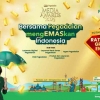To recognize genius is insufficient; to celebrate it posthumously is morally and strategically inadequate. Civilization cannot rely on the accidents of recognition, the whims of institutional intermediaries, or the delayed commodification of anticipatory contributions. The preservation and flourishing of genius demand intentional structures, proactive policies, and ethical vigilance.
The framework outlined in this paper---the Theory of Genius-Wealth Illusion, supported by historical analysis, sociological critique, philosophical reflection, and policy-oriented recommendations---reveals that genius is not simply rare or eccentric. It is fragile, systematically marginalized, and yet civilization's most potent engine of progress. Its protection is not charity; it is a prerequisite for sustained innovation, cultural richness, and scientific advancement.
In the final account, this work issues both a diagnosis and a challenge. The diagnosis: modern society continues to extract value from genius while failing to compensate the originators adequately. The challenge: to redesign the architectures of reward, recognition, and protection so that curiosity, originality, and foresight are not only celebrated in narrative but sustained in material reality.
If civilization fails to meet this challenge, it will continue to feast on the labor of its brightest minds while leaving them impoverished, misunderstood, or extinguished. If it succeeds, it will not merely honor genius---it will ensure that the engines of innovation, creativity, and discovery are fully operational, ethically grounded, and economically sustainable.
Thus, the stakes are clear, the pattern undeniable, and the imperative urgent: to align civilization's structures with the needs of those who imagine the future before it exists. Only then can genius and society coexist in a relationship of justice rather than exploitation, and only then can the human story unfold with the fullness of its potential.
References
Historical and Biographical Sources
Carlson, W. B. (2013). Tesla: Inventor of the Electrical Age. Princeton University Press.
Kanigel, R. (1991). The Man Who Knew Infinity: A Life of the Genius Ramanujan. Scribner.
Naifeh, S., & Smith, G. W. (2011). Van Gogh: The Life. Random House.
Seifer, M. (1996). Wizard: The Life and Times of Nikola Tesla. Citadel Press.
Economics and Human Capital
Becker, G. S. (1993). Human Capital: A Theoretical and Empirical Analysis, with Special Reference to Education (3rd ed.). University of Chicago Press.
Mincer, J. (1974). Schooling, Experience, and Earnings. Columbia University Press.
Stiglitz, J. E. (2019). People, Power, and Profits: Progressive Capitalism for an Age of Discontent. W. W. Norton & Company.
Piketty, T. (2014). Capital in the Twenty-First Century. Harvard University Press.
Sociology and Social Reward Systems
Merton, R. K. (1968). Social Theory and Social Structure. Free Press.
Parsons, T. (1951). The Social System. Routledge & Kegan Paul.
Bourdieu, P. (1984). Distinction: A Social Critique of the Judgment of Taste. Harvard University Press.
Collins, R. (1998). The Sociology of Philosophies: A Global Theory of Intellectual Change. Harvard University Press.
Philosophy and Ethics of Genius
Kant, I. (1790). Critique of Judgment (J. C. Meredith, Trans., 1952). Oxford University Press.
Schopenhauer, A. (1851). On the Will in Nature and the Arts. Dover Publications.
Nietzsche, F. (1883--1885). Thus Spoke Zarathustra (W. Kaufmann, Trans., 1966). Penguin Books.
Csikszentmihalyi, M. (1996). Creativity: Flow and the Psychology of Discovery and Invention. HarperCollins.
Science, Education, and Innovation







